Our Jeonju Travel Essentials include all of the most important facts you need to know for your holiday to this South Korean city in North Jeolla. The name translates to 'Perfect Region', and it's certainly fitting given the impressive gastronomy, buildings and festivals the city is home to.
In this guide, you'll find detailed information about essential aspects of Jeonju such as the plug type, currency, emergency phone numbers, local climate and more in addition to the best ways to get into town and around the city after arrival. Plus, you'll learn about unforgettable festivals and landmarks you won't want to miss. With this guide, it's easy to enjoy your holiday in Jeonju.
When is the best time to travel to Jeonju?

- The climate in Jeonju varies quite a bit based on the time of year, with temperatures in the summer averaging around 26°C, while winter's averages are often below freezing.
- Summer months like July and August get the most rain by far, with the rainiest month of August having an average 39% chance of rain every day, and the city getting 31.5 centimetres of rain throughout the month.
- The warmest month of the year is August, reaching highs of 31.4°C on average, with July being fairly hot as well and boasting highs of 30.6°C.
- The best time to visit Jeonju tends to be around spring when rain isn't all that common and temperatures are comfortable. To avoid the crowds, however, autumn is still quite comfortable before freezing temperatures roll in.
Jeonju basics
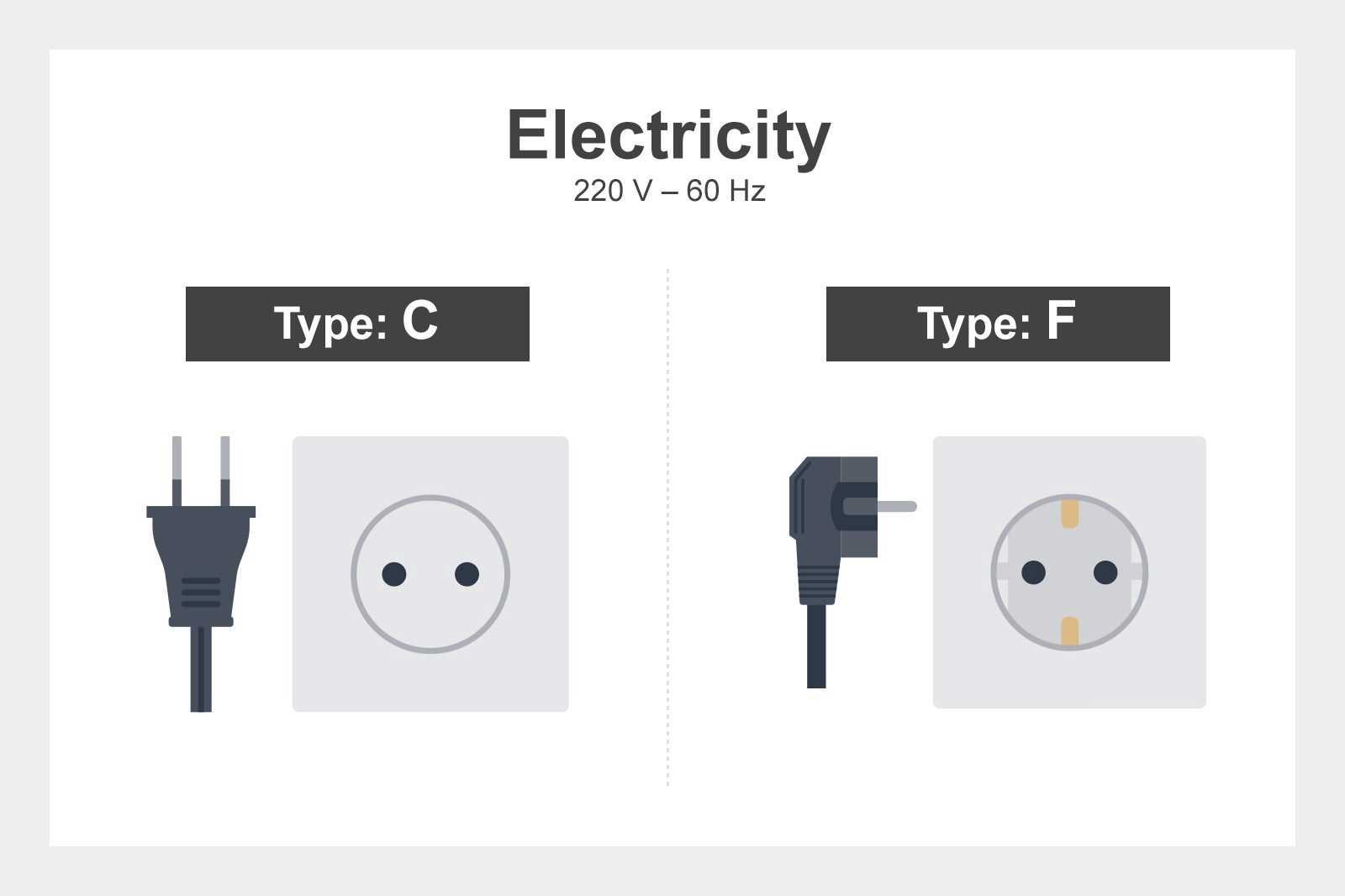
• Plug type: C or F
• Electricity: 220V
• Currency: South Korean won (₩)
• International dialling code: +82
• Emergency telephone number: 112
Kolla in
- 10 Best Local Restaurants in Jeonju

10 Best Local Restaurants in Jeonju
South Korea - 9 Best Local Dishes From Jeonju

9 Best Local Dishes From Jeonju
South Korea - 10 Iconic Buildings and Places in Jeonju

10 Iconic Buildings and Places in Jeonju
South Korea
How to get to my hotel in Jeonju?

When travelling from the UK, getting to South Korea is the longest stretch of the journey, because it's fairly easy to get anywhere in the country if you're already in Korea. The international airport in Seoul connects to cities all over the world, including in the UK, and it offers access to a train line that can take you straight to Jeonju.
Airports
The closest airport to Jeonju is Gunsan Airport, but that's probably not the one you'll be using. Gunsan is a domestic airport without much to offer travellers from the UK. Instead, you may fly into Incheon International Airport in Seoul. While it's more than 100 miles from Jeonju, it's the closest you'll get travelling from outside the country.
Major train stations
The major train station in town is Jeonju Train Station. This station is served by the KTX, which is a train line that stretches to Seoul about 2 hours away.
Ports
Jeonju is an inland city along a river that isn't used for transport, so there aren't any ports to enter from.
foto av Minseong Kim (CC BY-SA 4.0) redigerad
How to get around Jeonju?

Travel tips
Jeonju has an extensive public transport system, though it's primarily dominated by buses. The trains typically serve travellers by getting them in and out of Jeonju, while the city can be traversed by bus, by car or on foot. It's all fairly affordable, so if you don't feel like walking, the bus is your cheapest option.
Underground system
There is no underground in Jeonju. Jeonju Station, the central train station, is used for trains that run in and out of the city rather than different locations within the city.
Taxi and rideshare apps
Taxis are readily available throughout Jeonju. Fares tend to start around 2,800 won, with the average trip in the city costing about double the starting fare, if not a bit more. Rideshare apps like Uber aren't available in Jeonju. South Korea in general has taken a firm stand against rideshare apps, though that changed a bit in early 2022. Since then, South Korea and places like Jeonju have been allowing what are known as Banban taxis, which can be booked via a mobile app for a rideshare. Several limitations exist; you have to choose whether the ride can be shared when you book, and any passengers you share the ride with have to be of the same gender.
Bus network
The bus network in Jeonju is the main form of public transport used to traverse the city. Local buses use a flat fare system that starts at 1,100 won, which is about 70 pence. If you plan on seeing the city's major attractions, bus No. 1000 will stop at them all for your convenience.
Car hire
Car hire in Jeonju can be useful for traversing the city and surrounding areas, and you'll find plenty of options. Parking is fairly easy, and a wide variety of cars are available. All you need is an International Driving Permit issued in the same country as your valid driving licence. The minimum age depends on the vehicle you hire and the company you hire from. Small to medium cars from SK Rent-a-Car, for example, require the renter to be at least 21, while premium cars and minibuses have an age limit of at least 26. A 15-seat bus can only be hired by someone who's at least 30. At Lotte Rent-a-Car, the minimum age is 21 across the board, with 15-seat buses being the exception and requiring a minimum age of 26.
Bike hire
Bicycles are available throughout Jeonju, and the streets are easily navigable by them. Several bike trails are in the surrounding area too, so you may find more adventure than usual on the seat of a bike.
foto av Minseong Kim (CC BY-SA 4.0) redigerad
What are the main annual events in Jeonju?

Jeonju International Sori Festival
- When: September/October
- What: The Jeonju International Sori Festival is a music festival with quite a few different programmes and concerts celebrating not only traditional Korean music but also music from around the world. You'll find programmes including a traditional performance, an invitational performance, a children's performance and more. Admission is free.
- Where: Sori Arts Center
Jeonju International Film Festival
- When: April/May
- What: The Jeonju International Film Festival showcases hundreds of films from dozens of countries around the world that generally focus on the more experimental and artistic aspects of the medium rather than profit-driven blockbusters. It's quite competitive as well, with several judges handing out awards and prizes for films throughout the festival.
- Where: Jeonju Film Street
Jeonju Bibimbap Festival
- When: October
- What: The Jeonju Bibimbap Festival is a food festival celebrating bibimbap, which is one of the most popular foods among travellers to Korea. The dish grew to prominence during the Joseon period and has been a staple of the culture ever since. Jeonju is one of the gastronomic powerhouses of the country, so the festival here offers some of the best bibimbap you'll ever taste.
- Where: Jeonju Hyanggyo and around town
What are the main landmarks in Jeonju?

Jeonju Hanok Village
Jeonju Hanok Village is a small neighbourhood and village within the city that's known for its more than 800 traditional houses known as hanok. The traditional styling here serves as a stark contrast to the ultramodern city around it, and that difference is reflected in the general atmosphere as well. It's much more laid back and relaxed compared with the rest of the city.
Gyeonggijeon Shrine
Gyeonggijeon Shrine is a historic shrine that dates back to the early 15th century and is a designated historic site. The atmosphere is quite tranquil and peaceful, and in addition to the bamboo, trails and traditional styling, you may also see the portrait of King Taejo, who was the founder of the Joseon dynasty.
Pungnammun Gate
Pungnammun Gate is a city treasure dating to the 18th century consisting of solid stonework with traditional styling emerging from the top. It was the southernmost gate of the city among the historic 4 city gates, and it remains largely the same as it was when it was rebuilt in the wake of the Imjin War.
Nambu Market
Nambu Market is a traditional market that's been held for more than a century near the city's southern gate. Inside, you'll find about 800 stores and vendors offering a wide variety of food items in addition to silk goods, furniture and more. There's a designated youth market section as well as a night market held on Fridays and Saturdays with especially delicious food.
Artikeln innehåller åsikter från redaktionsteamet på Go Guides. Hotels.com kompenserar sina författare för texter som visas på sidan. Kompensationen kan motsvara resekostnader eller andra kostnader.
Börja planera din resa
Var ska man bo i Jeonju

Lahan Hotel Jeonju
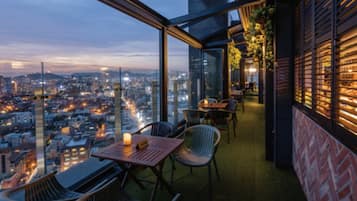
Gloucester Hotel Jeonju

SHILLA STAY JEONJU
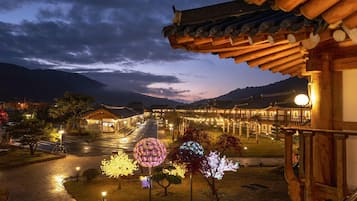
Jeonju Wangyijimil Hanok Hotel

Best Western Plus Jeonju Hotel

Hanok goeul
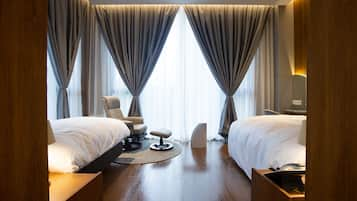
Jeonju Tourist Hotel Kkotsim

Jeonju Signature Hotel

The Classic by Hotelone

Neulpum Hotel
Liknande ämnen
- 10 Best Local Restaurants in Jeonju

10 Best Local Restaurants in Jeonju
South Korea - 9 Best Local Dishes From Jeonju

9 Best Local Dishes From Jeonju
South Korea - 10 Iconic Buildings and Places in Jeonju

10 Iconic Buildings and Places in Jeonju
South Korea - 10 Best Family Things to Do in Jeonju

10 Best Family Things to Do in Jeonju
South Korea - 9 Best Places to Go Shopping in Jeonju

9 Best Places to Go Shopping in Jeonju
South Korea - 10 Best Things to Do in Jeonju

10 Best Things to Do in Jeonju
South Korea - 10 Best Things to Do After Dinner in Jeonju
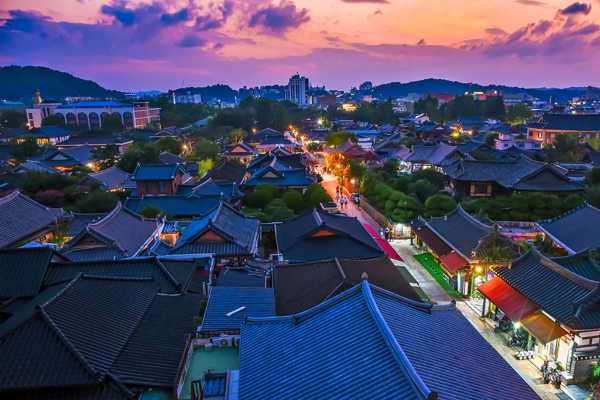
10 Best Things to Do After Dinner in Jeonju
South Korea - 10 Great Restaurants in Jeonju

10 Great Restaurants in Jeonju
South Korea
